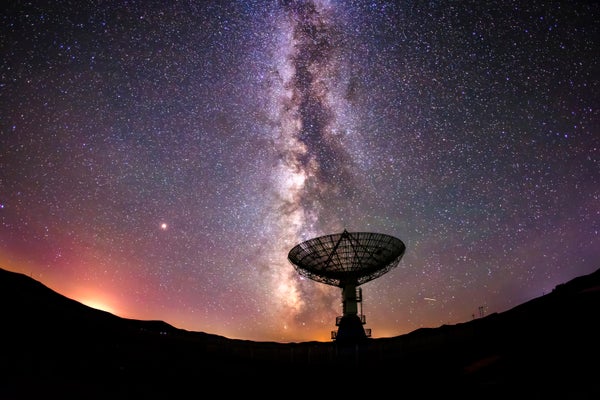Advances in science and technology over the past century have made us more self-reliant and less vulnerable to mishaps such as natural disasters or disease outbreaks. As a result, members of the middle class today are much better off in many ways than the wealthiest individuals were a century ago. I realized this fact on a guided tour through the Gilded Age mansions of Newport, R.I., where I noticed that at the turn of the 20th century, the owners of these huge houses slept on narrow beds and learned that they lived a lifestyle marked by strict social rules, limited control over life-threatening risks, and what would now be considered rudimentary medical care.
With the efficiency brought about by current technologies, we spend much less effort to achieve our goals. Instead of hunting and gathering as our Homo erectus ancestors did a million years ago, we can order food online in one click. Instead of sending a soldier named Pheidippides on a 26-mile run from a battlefield near the town of Marathon to bring a message of victory to Athens (where he promptly dropped dead) in 490 B.C., we communicate instantly using cell phones over much greater distances.
As an unintended byproduct of these technological advances, we have become less detectable by other civilizations that might exist in the Milky Way. At an earlier stage of progress, we unwittingly announced our existence prominently. Instead of radio broadcasts, which leak out into deep space, we now use cables or fiber optics, which do not. And civilizations out to 70 light-years away from Earth could easily detect the powerful radar beacons we used during the Cold War in warning systems for attacks with ballistic missiles.
On supporting science journalism
If you're enjoying this article, consider supporting our award-winning journalism by subscribing. By purchasing a subscription you are helping to ensure the future of impactful stories about the discoveries and ideas shaping our world today.
Our technologies evolve faster and faster now—exponentially, over a timescale of just a few years. Extrapolating this trend to the future, how will our descendants live billions of years from now? It is most natural to expect the ultimate technological intelligence to construct an artificial heaven, consuming energy from natural or artificial sources, such as stars or nuclear reactors, but losing interest in the outside world—since unprocessed environments are primitive, potentially dangerous and inherently boring.
A civilization in this ultimate state will not leave its home for space travel, because space poses uncontrollable threats. Even the short-distance travel from Earth to its neighboring planet, Mars, raises major health hazards from cosmic rays and energetic solar particles—and, when we arrive, UV radiation, lack of a breathable atmosphere and low gravity. A cautious attitude towards space travel in that far future would echo social distancing in the COVID-19 era, during which we stay home out of fear of the risks involved in traveling to uncontrolled environments. The ultimate civilization would undoubtedly prefer to be nourished through a self-designed umbilical cord, connected to an optimized technological habitat. Babies do not cry in a womb that satisfies all their needs.
It would be difficult for us to detect these ultimate-state civilizations, since they will live quietly. On the cosmic street, a loud presence might betray the primitive mindset of recklessness. In contrast, the ultimate-state civilization might choose to flourish in protective isolation and avoid physical contact with the outside world—so much so that some of its members could be tempted to argue that reality is a computer simulation, thereby locking themselves into a virtual world and reducing their profile in the real world to what would appear indistinguishable from a lifeless entity for an outside observer.
This ultimate state of isolation suggests a possible solution to Enrico Fermi’s “Where is everybody?” question, whereby the period of time over which a civilization transmits detectable signals is not terminated by self-destruction but rather by technological prosperity and detachment.
Sealed technological cocoons would appear to an outside observer as a lack of engagement. In contrast to crying babies, these mature civilizations would not be compelled to seek anything outside their habitat. They would be self-sufficient and exist in-and-of-themselves, maintaining aseity as in the philosophical concept of God. This means no communications directed at us, no help with our rudimentary challenges on Earth, and no success in our SETI efforts to find them. In short, it means Fermi’s paradox.
To our telescopes, these ultimate-state civilizations would appear indistinguishable from nature itself since their footprint will be minimalistic by design. But from their perspective, isolation will offer the added benefit of a strategy aimed at long-term survival against less-intelligent predators or space pirates who wish to steal technological wealth. There might be hidden wisdom for us to discover in Fermi’s paradox. We could reveal it either by visiting the homes of these socially distant civilizations, or by searching for the trash they dispose of, similarly to investigative journalists who root around celebrities’ trash cans looking for gossip. Waste production is one infant behavior that even the most advanced civilization could not outgrow, since it is mandated by the laws of thermodynamics.
Beyond the boundary of our own galaxy, the accelerated cosmic expansion offers an ideal backdrop for permanent social distancing among extragalactic civilizations. Once the universe will age by another factor of 10, no communication with extragalactic civilizations will be possible because they will recede away from us faster than light. So, if we want to meet somebody, as matchmakers often say, we should start looking now.
